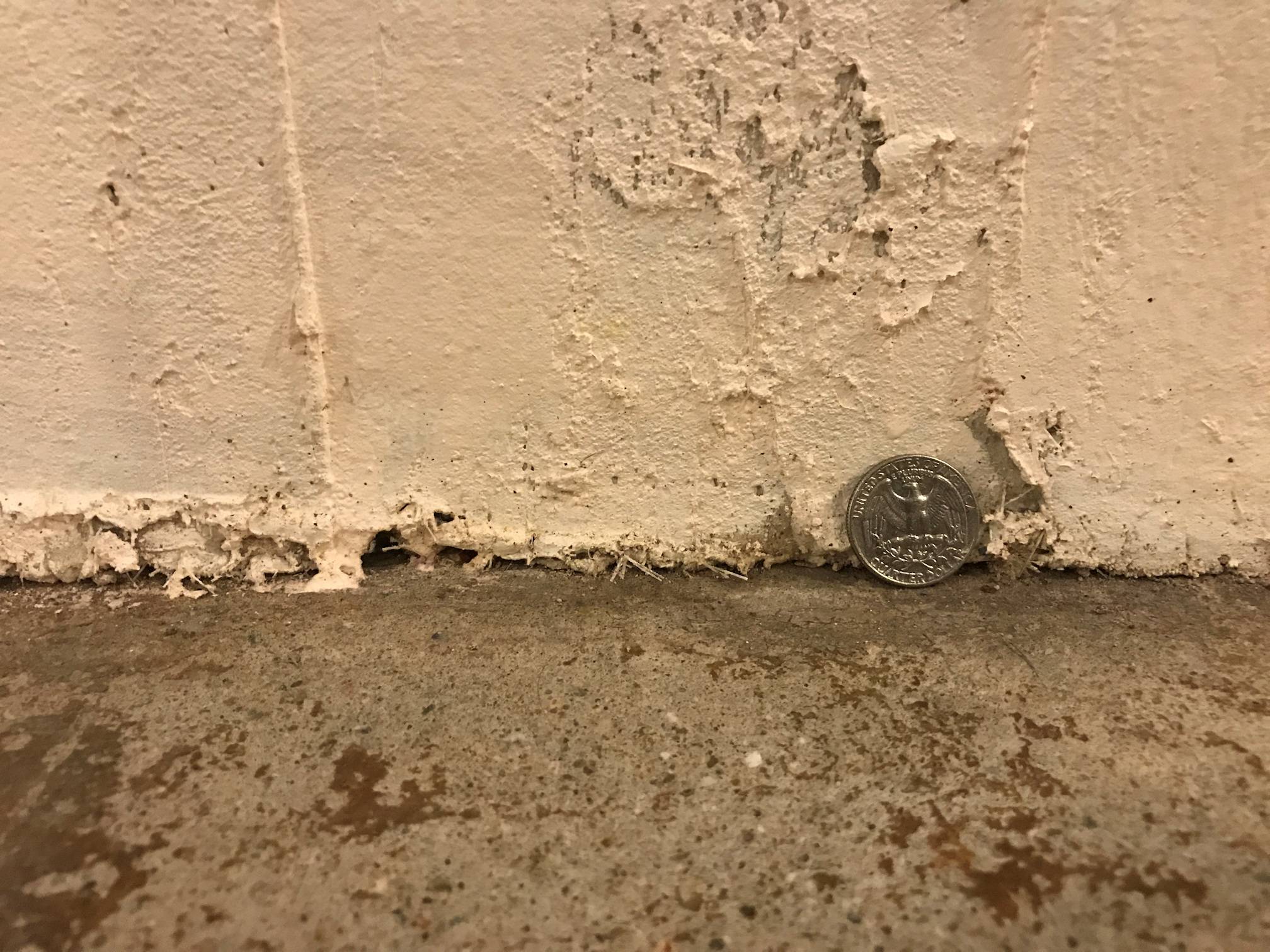After a particularly strong rainfall (every ~3 years), water seeps into my partially finished basement from small gaps in the intersection between the wall and floor.
The amount of water is significant. Last time (a couple of weeks ago), it was about 6 gallons.
The floor and walls are poured concrete, with the wall having a coat of plaster.
The issue only occurs on one wall.
I've looked into a drainage / grading solution, and I don't think I can solve the problem there. With these rainfalls, half of my backyard will be underwater, and a nearby intersection can get about 2 ft. of standing water.
The side of the house with the issue has good grading (by my assessment), 8 ft. gutter extensions, and is a side of the house that the roof doesn't slope onto.
Based on responses to other questions on this site ( How can I stop this water from entering my basement? and Can I paint or seal a very moist basement floor to make it waterproof?), it seems that an ideal solution would be a foundation membrane, but I can't afford that, and the problem isn't severe enough to warrant that expense.
So, I'm wondering inif using hydraulic cement in the wall-floor gaps would be enough to stop the water.
The gaps are small, so I believe I'd have to chisel out a larger gap to install the hydraulic cement properly.
I'd appreciate any thoughts on that idea or other suggestions.
If it makes any difference, my house does not have a sump pump.



